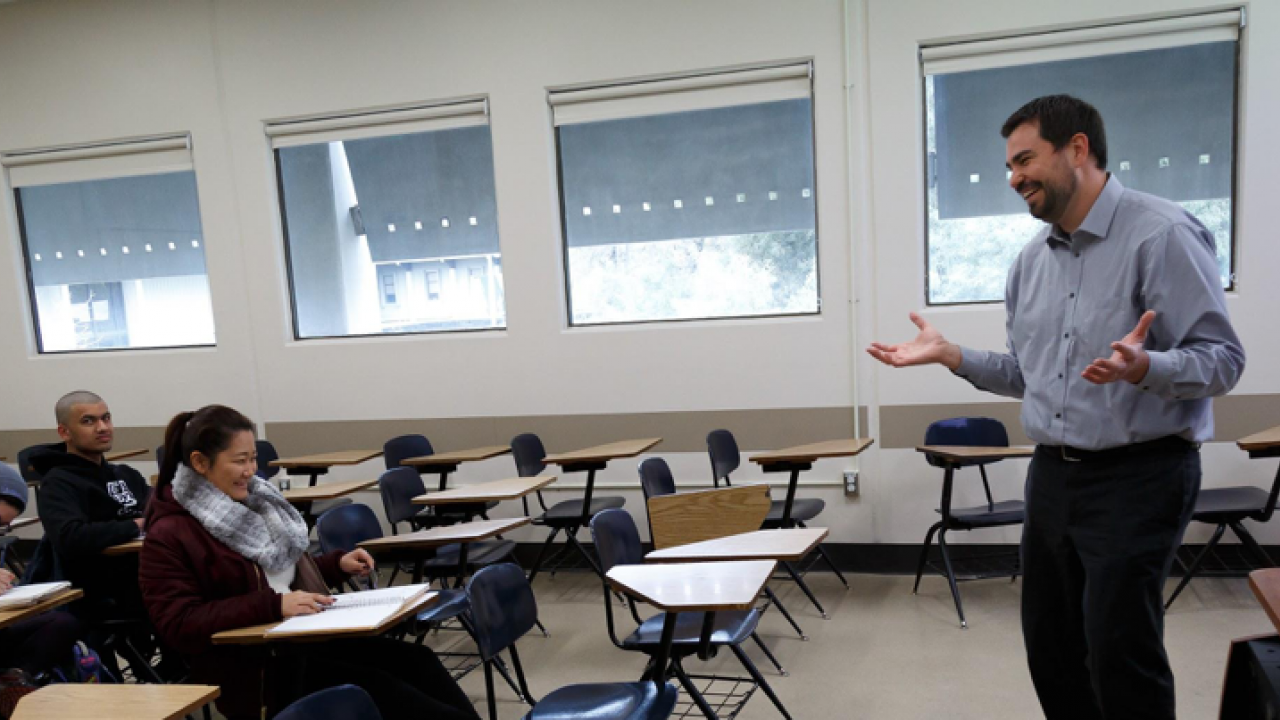
Jason White - Green Design
Faculty Spotlight: Dr. Jason White

When Dr. Jason White, Assistant Professor of Teaching in the Department of Chemical Engineering, wanted to enhance student learning in his course, “Process Economics and Green Design,” (ECH 158A), he turned to the Center for Educational
Effectiveness (CEE), applying for the Course REdesign and Teaching Effectiveness (CREATE) Fellows Program. White’s goals over the course of the year-long program: to improve student learning in his class by providing authentic assessments supported by a newly-designed laboratory component, and to enhance student learning by building significant, problem-based interactions into his course lectures.
To engage students in deeper exploration of concepts in chemical process economics and green design, White converted one hour of his course lecture to a design lab featuring authentic mini-design projects that engage students in actively thinking about key disciplinary practices and concepts, such as synthesis of process flow diagrams, process simulation, process safety, sustainability in plant design, and process economics. White chose the mini-projects as a way to enhance student learning not only because they engage students in thinking deeply about key concepts in process design, but also because participation in these mini-design projects gives students essential opportunities to develop the collaborative skills they will use to work effectively in teams in their future careers. The mini-design projects also help to prepare students for the capstone project that is required for the Chemical Engineering major.
In a second key aspect of the course redesign, White added an interactive lecture component involving activities in which students consider, along with the instructor, complex design problems presented via case studies. “My goal in adding this element of the course was to make the lectures more engaging and interactive, while giving students a way to realize the relevance of the course material to their capstone projects and future careers." White said.
To enhance their course redesigns, White and four other CREATE Fellows participated in the Course REdesign and Teaching Effectiveness (CREATE) Fellows Program, an innovative learning program created by CEE education specialists Cecilia Gomez and Patricia Turner, that included engaging in active-learning workshops, reading and discussing the latest research on pedagogy in higher education, and exploring potential applications of evidence-based teaching practices to their disciplines and their courses. They also reflected on their teaching by analyzing videotapes of their teaching and participating in CEE's Mid-Quarter Inquiry process.
White will be assessing the effectiveness of his course redesign through student course evaluations, peer and self-evaluations of group work, and performance on common assignments completed by the cohort taking the redesigned course as compared to students who took the course during the previous offering. White presented the course redesign at CEE’s 2018 Scholarship of Teaching and Learning (SOTL) conference this past fall.
Preliminary results show that students who took the redesigned course found that the course was effective in helping them learn. When asked which of the course elements were particularly impactful for learning, one student noted, “Interactive activities, as well as real life applications and practices…[also,] the discussion assignments helped a lot in training my critical thinking and analytical thinking abilities. I learned a lot about what chemical engineers do in industries, and what factors to consider when designing and operating a real project.”
To learn more about the CREATE Fellowship Program, please visit the CREATE page on the CEE website. The CREATE Fellows Program is led by Patricia Turner.
